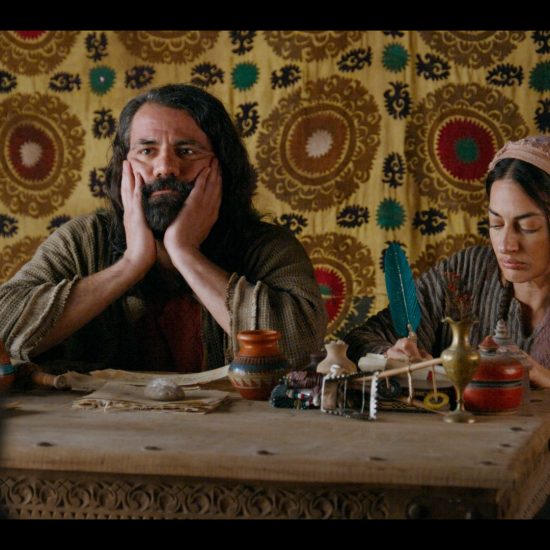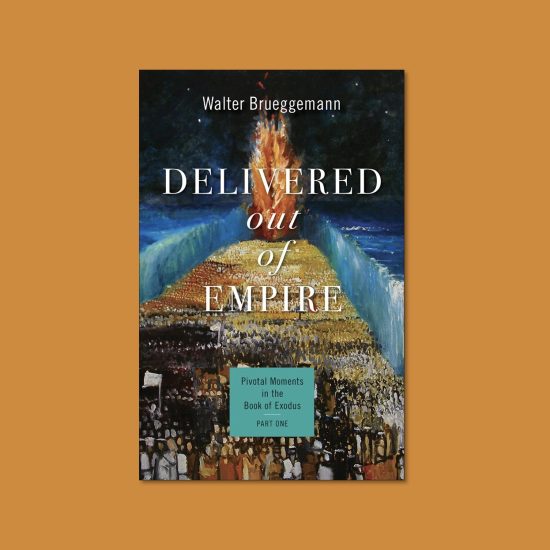
 The First Passover
The First Passover
Formations: February 23, 2020
Scripture: Exodus 12:21-31, 40

Michael K Olmsted
Everything in life is not easy, beautiful, or positive. We prefer to blame fate when life is ugly, but more often than not events are the result of our choices and we can usually talk ourselves into thinking our choices are right.
This is a painful story of choices, a powerful unfolding of death and deliverance, an undeniable revelation of life’s most important choice for the human heart. Pharaoh missed every opportunity to face the graphic warnings of the first nine plagues – now comes the night!
This God is no stone statue in an impressive temple on the banks of the Nile, no endorser of Egyptian kings, no figure dependent on government support, no regional power broker. The people of Israel came to Egypt 430 years earlier. They were herdsmen from unsettled grazing regions, who, with Joseph’s leadership became acceptable in the Nile River delta. Welcomed as immigrants, they became slaves. Slavery evolved over time as they grew in numbers and Pharaoh issued the edict that the boy babies born to those nomads were to be killed so the population of those foreigners would dwindle (Ex. 1:9-22). Pharaoh learned nothing from the nine original plagues: dead fish in a Nile River that seemed to turn to blood, frogs, fleas, sick livestock, festering boils, thunder and hail, locusts, and darkness.
But Pharaoh knows he is the greatest sovereign on earth. He is the favorite of the gods. He will not be cowed by a bunch of slaves from nowhere and their murdering leader. The final plague is coming and, from the royal palace to the prison cells and the barns, all of Egypt will weep over the death of the firstborn.

Photo by Aaron Burden on Unsplash
God gives Moses and Aaron specific instructions for “Passover” that will be a reminder through the centuries that God does not forget his people, nor does he go back on his promises. Each family is to slaughter a lamb for the meal on that darkest of nights. They are to make brushes from hyssop branches to smear the lamb’s blood on the lintel and doorposts of their houses, and stay inside while the Lord brings death throughout the rest of Egypt. This seminal event, tragic as it is, was to be commemorated in the annual feast of Passover, a reminder of God’s faithfulness to his people against all the odds. God says: “This shall be a day of remembrance for you. You shall celebrate it as a festival to the Lord” (v. 12).
“Let my people go” is Moses’ repeated call and warning to Pharaoh. But the self-important Pharaoh does not agree to let them go and the result was a gruesome tragedy. The rest of the story tells us he changed his mind only briefly.
This dramatic event reminds us about God’s grace and power, his faithfulness to his oppressed people, but it also troubles us with its brutality. We know the God whose Son came into our world and died on a cross so that we can experience his love and forgiveness. It is certainly valid to point out the brutality and dominant idolatry of that ancient world, the absolute and cruel power of kings.
But contemporary world events remind us that modern history is smeared with the blood and violence of political leaders, religious persecution, racism, poverty, natural disasters, and selfish religious thinking. We understand that the Bible offers a progressive knowledge of the nature of God. We read literature from a thousand years of events and developing ideas, the writings of prophets and scribes who witnessed God’s grace unfolding, until Jesus appeared with the clearest picture of God’s love and grace. In the ultimate revelation of God’s grace, we see God’s only begotten Son die on a cross for us all. The God who decreed the death of Egypt’s firstborn is the same God who gives his Son for us!
Hebrews 1:1-3 reminds us: “Long ago God spoke to our ancestors in many and various ways by the prophets, but in these last days he has spoke to us by a Son, whom he appointed heir of all things, through whom he also created the worlds. He (Christ) is the reflection of God’s glory and the very exact imprint of God’s very being, and he sustains all things by his powerful word.”
Think of it in terms of a child who must learn to add and subtract before he/she can tackle algebra, or learning your A-B-Cs before you read Shakespeare or Plato. The first Passover is a glimpse of what will come, offering events and ideas that will be fully discovered and experienced if you read the whole story. Jesus is God’s ultimate gift of grace and love, not just a powerful story or parable, but grace and love in a form we know and understand.
Understanding, if it is to truly shape your life, must be remembered. I remember with great fondness celebrating Passover in the home of Jewish friends. I was privileged to baptize their daughter the next year. The evening was shaped by the remembrance of God’s goodness to his people and his ultimate gift of redemption in the future. Our hostess said to me, “Michael, I cannot leave my Jewish heritage for a new faith.” My answer was simple, “Rebekah, to accept Christ is not to forget your Jewish heritage and faith, but to find it completed in Jesus, who fulfills all the promises of God for his people.”
The first Passover is about God’s love and faithfulness. When Jesus celebrated his last Passover with his disciples he said to them “this is my body … this is my blood” (Luke 22:14-22). As children of God we must remember and celebrate, for in so doing we will be moved to tell others about God’s love and gift of life. We will reveal that all the gods of the world are meaningless, and we will offer freedom from the world’s heavy burdens and values that offer no lasting hope. Celebrate and remember God’s salvation by who you are, by your values and words, and by your actions.
Formations is a curriculum series from Smyth & Helwys Publishing, Inc. through NextSunday Resources.
The PDF download requires the free Acrobat Reader program. It can be downloaded and installed at https://get.adobe.com/reader (uncheck optional offers first).



